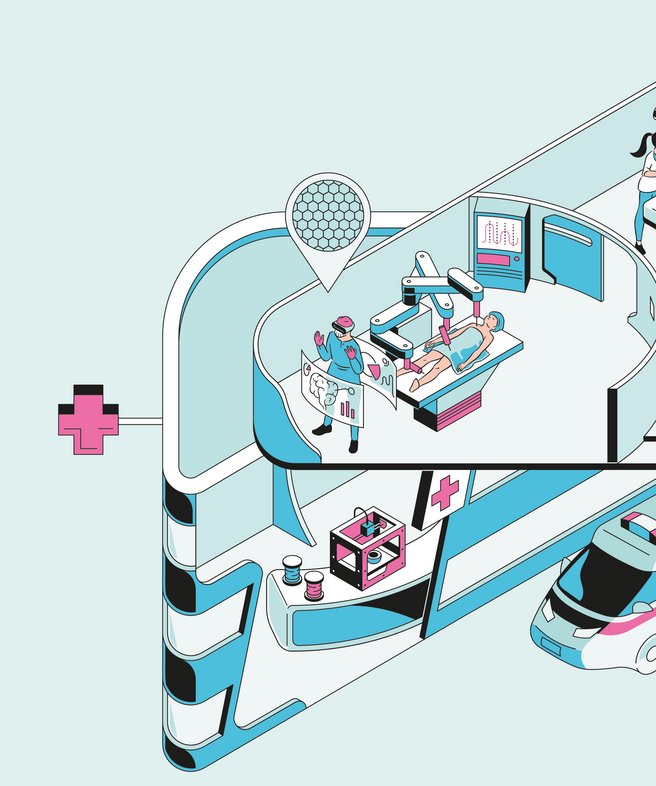HEALING ON DEMAND

The era of the all-in-one hospital is coming to an end. Specialization and networking enable synergies; routine therapies are carried out in special care centers. London has focused the number of critical care stroke units to 8 specialized centers, down from 31 units in various hospitals, which helped prevent 97 deaths last year.
Robots support doctors and take over many of their original activities—particularly in the operating room and in routine care. Operations are less invasive, errors due to fatigue are more avoidable, and nursing staff have more time for patients because the robots take over much of the physically demanding work.
Data exchange is one of the cornerstones of future healthcare. The electronic patient record is just one aspect of it. Monitoring devices in one’s own home transmit data to the doctor’s office, which the doctor uses to make adjustments remotely. Sensors in implants simplify diagnoses of patients and of medical products. Artificial intelligence optimizes the process.